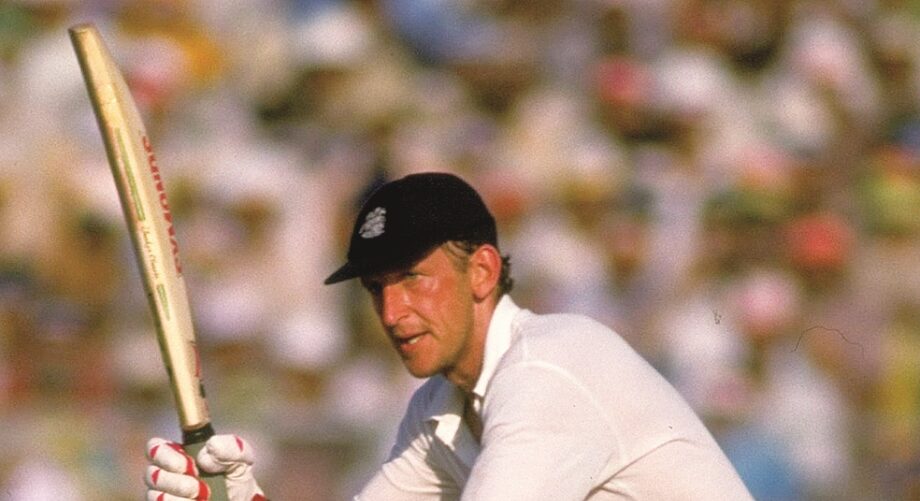By the time England take the field at the WACA for the last Ashes Test to be played at the home of Western Australia, anyone not aware that they have only ever won once on that ground will just not have been paying attention.
Doubtless, Joe Root and his players will also be fed up to the back teeth of hearing that England’s solitary victory there took place 39 years ago, before any of the current squad had drawn breath, and then against a team so denuded by defections to Kerry Packer’s World Series Cricket that it starred such Ashes greats as Rick Darling, John Maclean and Alan Hurst.
The magnitude of the task facing Joe Root’s players is clear from the size and scale of the seven successive Ashes defeats they have suffered there since the sequence began in 1991.
For, in chronological order, Australia have won by nine wickets, 329 runs, seven wickets, an innings and 48 runs, 206 runs, 267 runs and 150 runs.
Needless to say, six of those magnificently bad seven were taken in the process of losing the series and even Andrew Strauss’ history boys were thrashed there in 2010-11, before regrouping to end up 3-1 winners.
What a pleasure, then, to catch up this week with a member of the last England side to come away from Perth with the riches of a draw, the No.3 batsman who flew to Australia for the 1986-87 tour as a spare opener and returned an unsung hero in England’s “can’t bat, can’t bowl, can’t field triumph”, the redoubtable Bill Athey.
And to hear how, in the dark ages before the rise of the coaches, their success was based almost exclusively on the principles of DIY.
“The first few weeks of the tour were pretty much a shambles,” the 60-year-old former Yorkshire, Gloucestershire, Sussex and Worcestershire batsman recalls, “with the social responsibilities of the side in the hands of strict disciplinarians like Ian Botham, Allan Lamb and David Gower.”
Indeed Athey was not even due to play in the opening Test in Brisbane as England captain Mike Gatting had pencilled in a top six of Chris Broad, Wilf Slack, Gatting, Lamb, Gower and Botham.
But Middlesex opener Slack had been so out of form in the warm-up matches that he had to make way for the marginally less out-of-form Athey and, after Gower had bagged a pair in the final game against WA in Perth, Gatting put himself bang in the firing line at first wicket down (Joe Root, please note), which allowed the elegant left-hander to rediscover his form.
In the first Test in Brisbane, after Broad had gone at 15-1, Athey ground out 76 from 189 balls, featuring in a vital century stand with his skipper.
A brilliant attacking hundred from Botham (138 from 174 balls), his last for England, then enabled them to establish the position of superiority they retained until the series was won in the fourth Test at the Melbourne Cricket Ground, with Broad recovering from his failure to score decisive tons in the first innings of the next three Tests.
Perth was the scene of Athey’s other major contribution, when he supported Broad with 96 in their opening stand of 223.
“I sometimes wonder what a difference those extra four runs would have made to my career,” he says. “Actually I’m pretty sure that earlier in my innings I got a touch on a leg side boundary that the umpire signalled as four byes.”
(On behalf of a grateful nation, The Cricket Paper hereby awards Bill Athey a virtual Ashes century.)
“But just being part of an Ashes win was incredibly special and the social committee made sure we enjoyed it to the full.”
Athey is definitely not a member of the In-My-Day club, though he admits his equable temperament was later tested as he watched from the other end as Gatting reverse-swept England’s chances of winning the 1987 World Cup against Australia at Eden Gardens to death.
But his memories of how he and his mates went about their business in his day are worth reflecting on.
“Our support team numbered four,” he remembers. “We had Micky Stewart, the coach, Peter Lush, tour manager, Laurie Brown, physio, and Peter Austin, the scorer, plus Elton John, the mascot, who was doing a concert tour Down Under but seemed to be in our dressing room as often as he was on stage.
“When it came to coaching, Micky was in charge of practice and if you had a technical issue he was there to help but, in the main, we coached each other.
“Batsmen would work with other batsmen, bowlers would work with other bowlers and Jack Richards, our first-choice ’keeper worked with Bruce French, our reserve.
“Laptops hadn’t been invented and, as for analysis of opposition strengths and weaknesses, you relied on experience of what you had seen before, what had been passed on or what you picked up on the field. It seemed to work okay.”
He didn’t say it but, for some observers, running through the number of those employed to do similar jobs these days may soon replace counting sheep as the preferred antidote to insomnia.
Nor did he say the following, so I will: in the evidence of their efforts so far, instead of more paralysis by analysis, perhaps Root and his players should take a leaf out of the book written by Gatting and his heroes of 31 years past, clear their heads and just go out and play.












